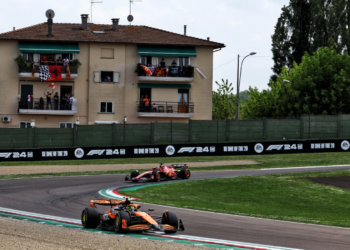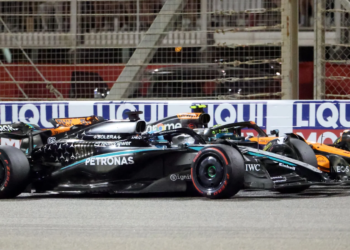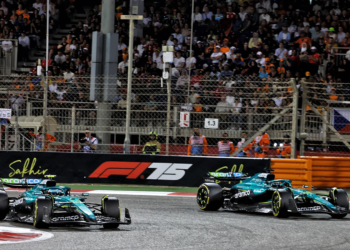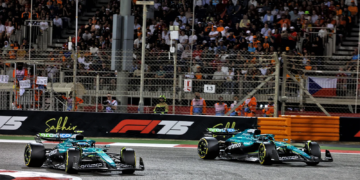Helmut Marko has denied that an overhaul to the Formula 1 engine regulations in 2026 could see one manufacturer end up with an advantage like Mercedes in 2014.
The current 1.6-litre turbocharged V6 engines were introduced 10 years ago to replace the previous 2.4-litre V8 powertrains which had been in use from 2006 to 2013.
Mercedes contributed substantial resources in advance to assemble a powertrain that saw the marque’s works operation capitalise on the reset to become dominant.
The German outfit took 16 wins from 19 races to commence a run which would see the side claim an unprecedented eight consecutive Constructors’ Championships.
But while it endured a barren streak until a recent resurgence under the present aero rules, Mercedes is touted to be well-positioned come the series’ next era in 2026.
Mercedes is reported to be the most advanced in development with the electrical-focused next-generation power units compared to rivals Ferrari, Honda and Renault.
However, Marko isn’t concerned Mercedes could create a seismic margin over the rest similar to 2014 and has addressed rumours about Red Bull’s alliance with Ford.
“I don’t think it will be a game changer like 2014, where Mercedes were 50bhp or more ahead,” Marko told GrandPrix247.
“In the end, you really will see once see when the engines are running out on track in 2026, but so far we at Red Bull are on plan.”
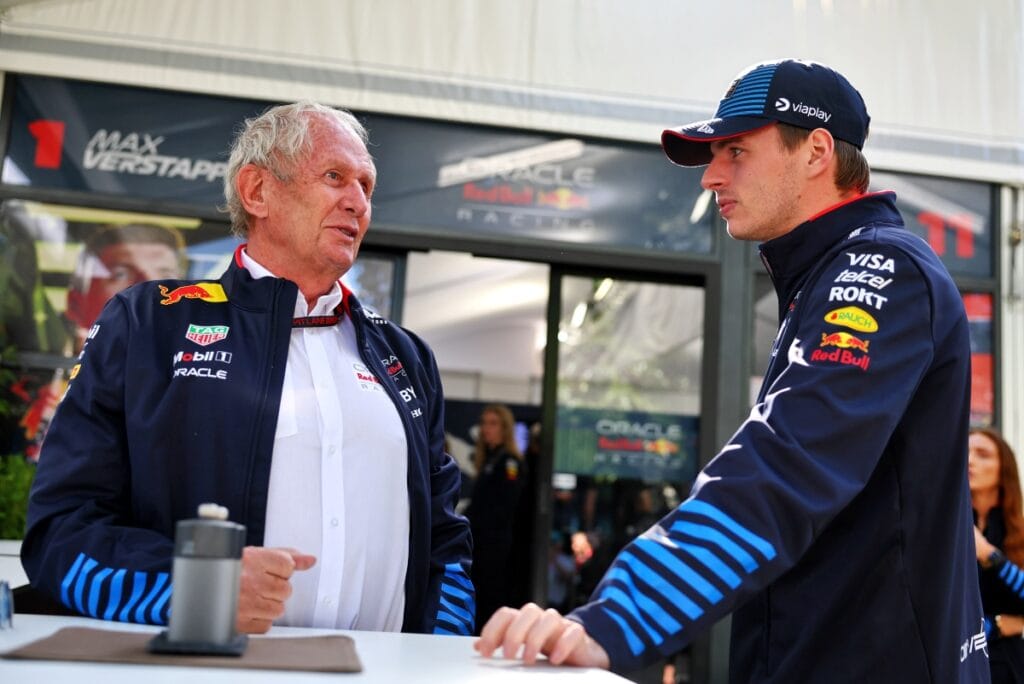
Red Bull has constructed a Powertrains division on-site at Milton Keynes as it gears towards becoming an engine manufacturer for the first time in the team’s history.
Marko has divulged the late Dietrich Mateshitz held reservations over authorising such a venture that included initial plans to partner with the German brand Porsche.
The Austrian, 81, has explained that Porsche represented the “ideal partner” when discussions started, but a disagreement over the team’s shares put an end to talks.
“To make our own F1 engine was a brave decision, and also a very costly one,” Marko explained. “So Mr. Dietrich Mateschitz [Red Bull’s previous owner] was worried.
“First, that we can do it alone. And secondly, about the costs. There had been some interest from other manufacturers who contacted us for cooperation.
“So when Porsche came around, from a marketing point of view, they would have been the ideal partner.
“In the end, it didn’t work out because we had different views. How it should work and if it was a 50/50 partnership it was never going to be easy.”
However, Red Bull’s nascent engine plans were salvaged when Ford emerged as a viable alternative to complete the American automotive giant’s return to the sport.
“After the decision not to go with Porsche, we found in Ford a very good partner who didn’t want to interfere in the racing details because there we are better,” he said.
“So we have a partnership where Ford can provide some knowledge and know-how. For example, maybe on the battery side and so on.
“But they just support and of course financial backing. So it’s a good cooperation. At the moment we are on plan with our engine program.
“Everything is on time. But the problem is it’s completely new regulations. 50% electrical 50% combustion. So fuel will be a big factor.
“The first time we will be using 100% e-fuel and how quickly you can get the battery into the engine. The final regulations aren’t yet there.”




